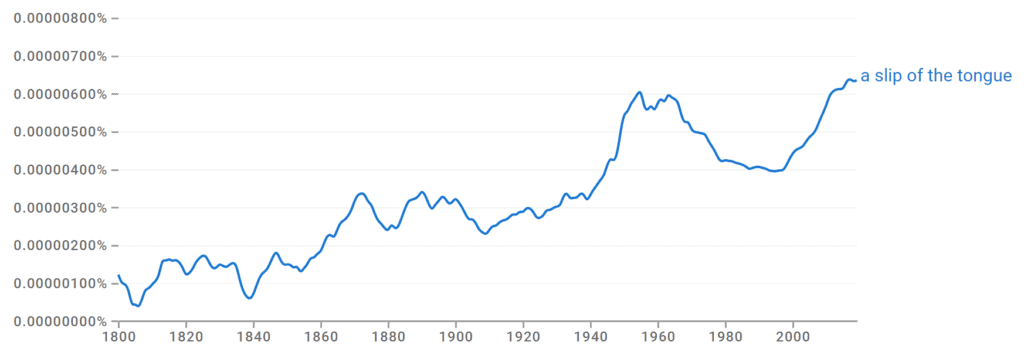In the vast realm of spoken communication, where words fly swiftly, making a faux pas is not uncommon, commonly known as a slip of the tongue. Before I break down the details around using the expression a slip of the tongue, let’s take a detour and learn what malapropism is and how it relates to this phrase.
Defining Malapropism
The word malapropism is derived from a character, Mrs. Malaprop, in Richard Brinsley Sheridan’s 1775 play, The Rivals. It points at the humorous misuse of a word by confusing it with a similar-sounding word. Someone saying they are the pineapple of politeness instead of the pinnacle of politeness is a classic malapropism.
How does this relate to the expression a slip of the tongue? Let’s find out!
Meaning of Slip of the Tongue

A slip of the tongue is a common expression that refers to a minor mistake in speech, usually caused by careless speaking. It could be a momentary lapse in articulation, pronunciation, or even saying something you didn’t mean to say, like revealing a secret.
Malapropisms can also be considered a type of slip of the tongue, where someone accidentally uses a word they didn’t intend or truly thought was the correct word.
My son, up until a few years ago, would always say specific ocean instead of the Pacific Ocean, and that’s a great example of both a malapropism and a slip of the tongue.
A Dash or No Dash?
Hyphenation can sometimes be tricky in the English language, but in this case, it’s pretty straightforward. A slip of the tongue is typically not hyphenated. The words stand independently without needing a hyphen for clarity or readability.
Peering into the Origins of Slip of the Tongue

The phrase a slip of the tongue goes back to the early 17th century and derives from the Latin phrase lapsus linguae. In the centuries since, it’s become a common idiom in English to show unintentional verbal errors.
Synonyms for Slip of the Tongue
Looking for some alternatives to a slip of the tongue? You’re in luck; here’s a list of other words and terms you can use instead!
- Freudian slip
- Verbal blunder
- Linguistic error
- Gaffe
- Faux pas
Using Slip of the Tongue in Sentences

Ready to incorporate a slip of the tongue into your conversations? Here are some great examples in a sentence.
- During the interview, John made a little slip of the tongue and revealed confidential company information that could cost him his whole career.
- It was an actual slip of the tongue when she called her new boyfriend by her ex’s name.
- The famous comedian’s slip of the tongue led to an eruption of unexpected laughter from the audience.
- I had a slight slip of the tongue in my Facebook live video and accidentally revealed the title of my next book too early.
Until the Next Slip of the Tongue
With these tips and insight, you should be well informed to use the phrase a slip of the tongue. In the end, it really just means saying something you shouldn’t have. And remember, everyone makes mistakes, even in language. It’s all part of the charm of human communication.
